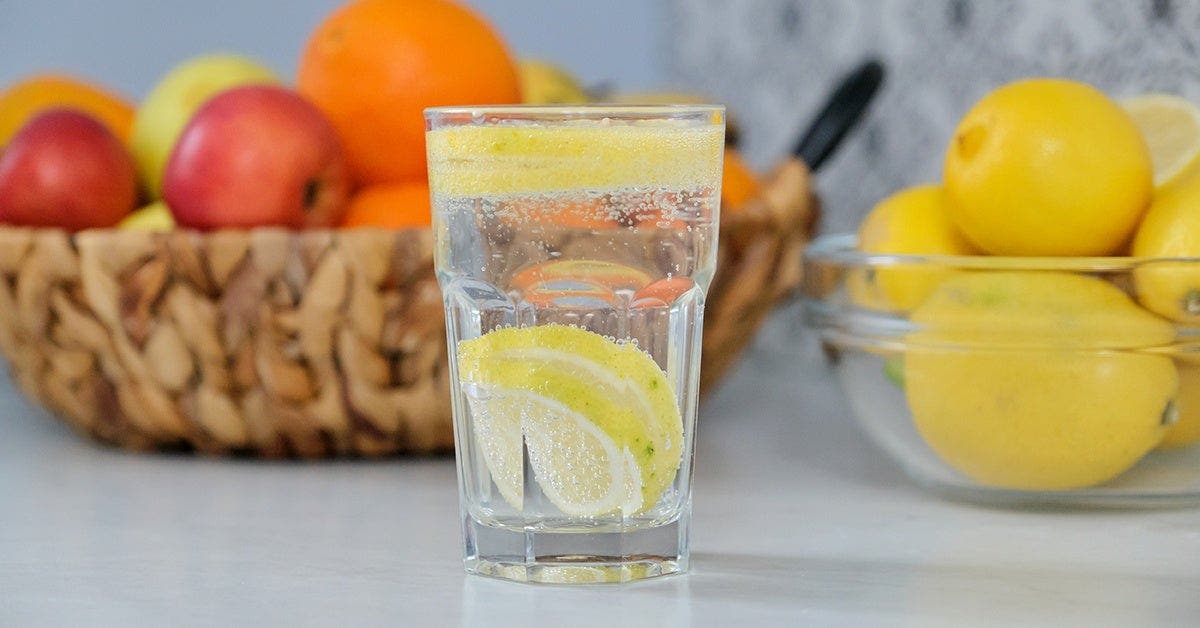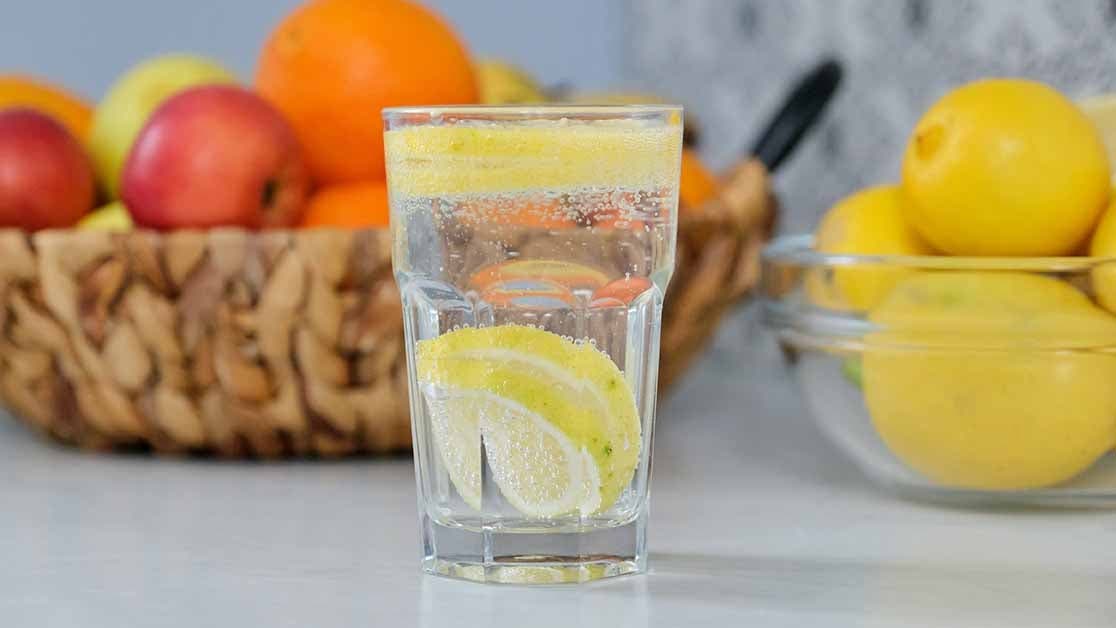14 evidence-based benefits of drinking water


Drinking enough water is one of the simplest and most important things you can do to optimize your health and wellbeing—starting right in the body’s command centre. “Water is needed by the brain to create electrical signals, making it possible for charged ions to be rapidly moved in and out of nerve cells,” says Jodi Stookey, PhD, a nutritional epidemiologist specializing in water and hydration effects on chronic disease at the Children’s Hospital Oakland Research Institute in Oakland, California. “None of that could take place without water.”
As for the rest of the body, water is a main component. “Fifty to 60% of a person’s body weight is water,” says Vicki Shanta Retelny, RDN, a Chicago-based registered dietitian nutritionist. “When your hydration levels drop, you are literally that much less you.” Knowing that, it’s not surprising that even small fluid losses can have adverse effects. For example, research consistently shows that losing just 1% of the body’s water is enough to throw off cognitive performance.
Read on for a closer look at how much water we need to drink every day—and how staying adequately hydrated can support your health and happiness.
Water 101: How much water do you need to drink?
Federal guidelines set general recommendations for adequate total water intake—meaning from drinks and foods—for healthy adults living in a temperate climate. For men, it’s around 3.7 litres (125 ounces, or just over 15 cups). For women, it’s about 2.7 litres (91 ounces, or just over 11 cups) each day. For a more specific daily baseline, you can also try plugging your age and weight into a simple formula.
In either event, treat your target like a ballpark amount. “These recommendations only provide an estimate of fluid needs,” says Kaleigh Carpenter, RD, a registered dietitian with The Ohio State University Wexner Medical Center. Individualized fluid needs are further influenced by factors such as environment, medications, and physical activity levels, she notes. For example, hot weather and certain drugs can increase fluid losses, and therefore fluid needs.
Knowing how much water you lose during exercise can give you a sense of how much to sip afterward. To do: Weigh yourself in light shorts and a top—not the clothing you’re exercising in—before and after your workout. Every 2.2 lbs (1 kg) of weight you lose equates to about 1 litre (34 ounces) of lost fluid. To adequately rehydrate following exercise, it’s generally best to consume 150% of the fluid amount lost, according to guidelines from the University of Connecticut.
And lest we forget food, note that water-rich fare such as soup, yogourt, and fresh fruit is important for staying hydrated, too. The National Academies of Sciences, Engineering, and Medicine estimate that 20% of the average American’s fluid intake is from food.
14 benefits of drinking water
Drinking enough water can be a challenge, especially if you’re not a fan of the plain stuff. Check out these 14 evidence-based health benefits of water for some sip-spiration, then read on for more ways to hit your daily target.
1. May help manage weight
At some point, you may have wondered, “Could drinking water before meals help me feel full, eat less, and lose weight?” On that matter, the jury is out. Relatively few studies have investigated a link between water consumption and energy intake, and results so far have been mixed.
For example, one 12-week study on middle-age and older adults in the U.S. found that those who drank just over 2 cups of water before meals ate less than subjects who skipped water. And after 12 weeks, those who had preloaded with water before meals lost 4.4 lbs more than those in the control group.
Other studies, however, have shown no impact on feelings of fullness and weight loss. More research is needed, says Zoe Griffiths, RD, WW’s global head of nutrition. What we do know: Drinking water helps you stay hydrated and water contains zero calories or sugar. Swapping sugar-sweetened beverages, such as regular soda, for water will reduce calorie intake without compromising hydration status. It makes sense to drink water regularly and with meals.
2. Helps optimize concentration
“The brain functions best when adequately hydrated,” Shanta Retelny says. “Thinking is clearer and focus is better, and neurons are sure to fire better.” A study on women published in The Journal of Nutrition explored hydration status on brain function and found that a loss of 1.4% of body weight in fluids during exercise caused a drop in concentration.
3. Improves mood
A variety of factors affect our mood—and hydration status is yet another. The study cited above, from The Journal of Nutrition, also found an association between mild fluid losses and mood disturbances. Further research will look at reasons for the link. In the meantime, think of sipping as something to smile about.
4. Optimizes physical performance
Water helps regulate body temperature, blood pressure, and the efficient transport of nutrients and waste in working muscle. All are essential functions that affect physical performance, reports the American Council on Exercise. Lose just 2% of your body’s fluid, and you might start to experience fatigue, a feeling of greater exertion, and trouble regulating body temperature. Stay on your game and keep a water bottle handy.
5. Needed for lubricating joints
Water is a component of synovial fluid, which lubricates and cushions the joints and surrounding cartilage to prevent painful rubbing of bones. Adequate hydration is important for ensuring each joint’s synovial membrane can make this protective fluid, Shanta Retelny says.
6. Prevents certain headaches
Water restriction can be a cause of headaches, Shanta Retelny says, explaining that being adequately hydrated ensures enough fluid for the brain to function. A small study on dehydration headaches found that 33 out of 34 volunteers got relief in as little as 30 minutes after drinking at least one glass of water. Might be worth a try before popping an aspirin, Shanta Retelny says.
7. Needed for regulating body temperature
“Our bodies remove heat through sweat,” Carpenter says. “We need to be well hydrated to do this effectively—for water to be moved to the surface of skin, where it evaporates.” The warmer the environment, the more important water is, she continues. Dehydration in a hot setting can lead to heatstroke, a fast-moving, potentially fatal form of overheating.
8. Improves skin hydration
As the body’s largest organ, skin depends on adequate hydration, too. And while not much can be said to stop “aging” (except freezing time, perhaps), a 30-day study of 49 women found that those who stepped up their water intake experienced improvements in skin’s superficial and deep hydration status.
9. Helps prevent hangovers
Alcohol is a diuretic, meaning it promotes fluid loss from the body through increased urine production. Some classic hangover symptoms—think pounding headaches—are actually caused or worsened by booze-induced dehydration. To help ensure your next happy hour doesn’t leave you hurting the next day, sip a glass of water between adult beverages (or first thing the following morning).
10. Helps prevent kidney stones
Drinking water is one of the best ways to reduce the risk of painful kidney stones, according to the National Kidney Foundation. Without enough water coming in, urine production drops. This can allow stone-forming minerals to clump in the kidneys and bladder. Similarly, getting adequate fluid can help control the risk of urinary tract infections (UTIs), as underhydration can promote the growth of infection-causing bacteria, according to UCLA Health. Two healthy reasons to drink up!
11. Needed for digestion
Ever hear the claim that water disrupts digestion? Don’t believe it. There’s very little evidence supporting the idea that it’s better to drink after eating, Shanta Retelny says. In fact, “water makes up the largest part of digestive juices in our gut,” she adds. “The digestive process starts off in the mouth with saliva, which is more than 99% water.” Make sure you’re getting adequate hydration throughout the day to support the production of digestive juices, and drink whenever you want to during meals.
12. Helps prevent constipation
If you want to stay regular, sip regularly. “Not drinking enough fluid is a common cause of constipation,” Carpenter says. Consuming enough fibre is important for regular bowel movements, too, so be sure to include plenty of fruit, vegetables and whole grains in your diet.
13. Maintains blood volume
Water is the main component of blood plasma, making up over 90% of what is flowing through your blood vessels. Water enables oxygen and nutrients to be delivered throughout the body, from top to toe.
14. Needed for elimination of toxins
Water makes it possible for the kidneys to excrete waste created by our body’s 24/7 metabolic processes. Speaking of kidneys, the color of urine may offer useful clues about your hydration status. See the FAQ section below for more on what to look for.
Health benefits of hot and cold water
Drinking enough water in general is important for health and wellbeing. But there may be some bonus perks to sipping water at certain temperatures.
A benefit of drinking hot water
Got a case of the sniffles? Enjoying a steamy drink from a mug might make you a little less miserable. A study published in Rhinology found that a hot fruit drink relieved a greater number of common-cold symptoms—including sore throat and fatigue—than an otherwise identical fruit drink sipped at room temperature.
A benefit of drinking cool water
Cool water may nudge you to hydrate more effectively after a workout. The International Journal of Clinical and Experimental Medicine published a small study exploring the question of whether water temperature affects how much a person voluntarily drinks after sweaty exertion. The answer? Yes. Volunteers did the most sipping when water was at a cool 60°F (16°C, about the temperature of cool tap water) and drank significantly less when water was refrigerator-cold (41°F, or 5°C) or at room temperature.
The upshot: Drinking enough water has proven benefits
Water is essential for good health and well-being, making it possible for every cell in the body to perform a multitude of metabolic processes all day, every day.
To optimize your hydration status, Carpenter encourages you to get creative. One idea to make water more exciting is to get an infuser bottle and add chopped fruit, veggies, or fresh herbs for natural flavour. Also, think beyond the glass: Enjoying juicy, fresh fruits and other water-rich foods or recipes, such as nourishing soups, can be helpful in keeping you adequately hydrated.
Answers to some other hydration FAQs
Does coffee cause dehydration?
No. Not only does your morning joe not dry you out, it counts toward your hydration goals just like plain water. The University of Birmingham conducted research on men who were habitual moderate coffee drinkers and found no difference in their hydration status on days they drank about 2 cups (200 ml) of coffee a day and days they drank water instead.
Can my pee colour tell me when I’m dehydrated?
Perhaps. “Urine colour can be a useful indicator of hydration status,” Carpenter says. “Urine that is pale yellow generally indicates adequate hydration.” If your pee is dark yellow or orangey, you may need to up your fluid intake. Just bear in mind that urine colour is not a perfect measure and can be affected by other factors, including certain medications, vitamin B2 supplements, and natural pigments in foods.
Are eight glasses of water every day enough?
There’s no one-size-fits-all number for how much water to drink. Fluid requirements vary from person to person—and day to day. Our daily needs depend on our individual tendency to sweat, our physical activity level, the weather, and other factors. Most healthy adults can stay hydrated by understanding their baseline water-intake recommendations and drinking water when they feel thirsty.
